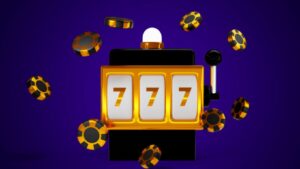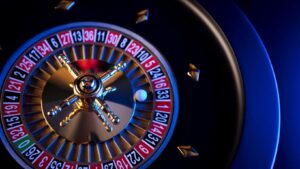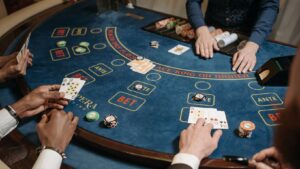Table of Contents
ToggleIn a world where magic meets modernity, neo-pagan books are the secret doorways to ancient wisdom and contemporary enchantment. Whether you’re a curious seeker or a seasoned practitioner, these literary treasures offer insights that can spark your imagination and deepen your spiritual journey. With topics ranging from rituals to herbalism, they promise to turn your coffee table into a mystical library.
Overview of Neo Pagan Books
Neo-pagan books cover a range of topics relevant to modern spiritual practices. They often emphasize rituals, beliefs, and ethics that resonate with contemporary practitioners. Many authors contribute unique perspectives that help readers understand the diverse nature of neo-paganism.
Readers can find texts dedicated to specific paths such as Wicca, Druidry, or Heathenry. Each path presents its own distinct traditions, symbols, and practices, allowing for a rich exploration of spirituality. Some books delve into practical aspects like ritual creation and spell work, providing step-by-step guidance.
Historical context plays a crucial role in many neo-pagan texts. Books often explain ancient traditions and their relevance to today’s practices, facilitating a deeper connection with ancestral wisdom. Additionally, scholarly works examine neo-paganism’s emergence within the broader cultural framework, offering insights into its evolution.
Herbalism and natural magic frequently appear as central themes in these books. Texts about herbs include medicinal uses, magical properties, and ways to incorporate them into rituals. Readers benefit from understanding plant magic, which enhances their connection to nature.
Community and personal growth also receive emphasis in various titles. Some books address how to forge connections within the neo-pagan community, highlighting the importance of shared experiences. Others focus on self-discovery, offering tools for enhancing personal spiritual paths.
Neo-pagan books enhance understanding and practice for both newcomers and experienced practitioners. They transform ordinary spaces into sanctums of knowledge and exploration, enriching the overall spiritual journey.
Popular Genres Within Neo Pagan Literature

Neo-pagan literature encompasses various genres, each offering distinct insights and practices. Readers can explore Wiccan literature, Druidic texts, and Heathenry books to enrich their spiritual paths.
Wiccan Literature
Wiccan literature focuses on the practices, rituals, and philosophies of Wicca. Texts often include spellbooks, guides on rituals, and historical accounts of the tradition. Prominent authors like Scott Cunningham and Raymond Buckland provide accessible information for both beginners and experienced practitioners. Rituals covering the Wheel of the Year are well-documented, helping practitioners align with nature’s cycles. Practical information on herb use and magical correspondences offers useful guidance for rituals and personal practice.
Druidic Texts
Druidic texts delve into the beliefs and practices of Druidry, emphasizing connection with nature and ancient wisdom. Sources like “The Druidry Handbook” by John Michael Greer provide foundational knowledge. These texts explore lore, ancestry, and the natural world, promoting a deep respect for nature. Meditation practices and rituals encourage personal growth and spiritual connection. Furthermore, Druidry often includes insights into Celtic mythology and the importance of place, enriching readers’ understanding of their environment.
Heathenry Books
Heathenry books focus on the revival of pre-Christian Norse traditions. Classic texts such as “The Poetic Edda” and “The Prose Edda” offer critical insight into mythos and cultural practices. Many modern authors, including H. R. Ellis Davidson, explore the rituals, beliefs, and ethics of Heathenry. Themes of community and ancestry play significant roles, inviting practitioners to connect with their heritage. Additionally, practical guides on rites and seasonal festivals help foster communal bonds and spiritual reflection.
Recommended Neo Pagan Books
These neo-pagan books enhance spiritual journeys and deepen understanding of various traditions and practices.
Beginner-Friendly Selections
“Living Wicca” by Scott Cunningham offers a practical introduction to Wicca, presenting accessible rituals and tools for daily life. “The Complete Book of Incense, Oils and Brews” also by Cunningham covers essential recipes and practices for aspiring practitioners. “Dancing with Dragons” by DJ Conway explores the connections between dragons and personal energy, appealing to those interested in elemental magic. “The Green Witch” by Arin Murphy-Hiscock emphasizes herbalism and nature-based practices, guiding readers toward a harmonious lifestyle with the earth. Each of these selections provides foundational insights, making them ideal for those new to neo-paganism.
Advanced Reading List
“Stalking the Wild Pendulum” by Itzhak Bentov delves into the intersection of science and spirituality, challenging readers with complex ideas about consciousness. “The Druidry Handbook” by John Michael Greer offers advanced insights into Druidic practices, integrating ancient wisdom with modern interpretations. “Northern Tradition for the Solitary Practitioner” by Galina Krasskova presents in-depth rituals and theoretical underpinnings of Heathenry, geared towards independents. “A Witch’s Book of Spirits” by Devin Hunter examines the relationships between witches and spirits, encouraging deeper exploration of magical realms. These titles serve as valuable resources for more experienced individuals seeking to expand their practices and understanding.
Impact of Neo Pagan Books on Modern Spirituality
Neo-pagan books significantly shape modern spirituality by providing diverse resources for exploration. They offer insights into rituals, herbalism, and ancient traditions, enabling practitioners to connect with their spiritual roots. Each genre within neo-pagan literature supports various paths, such as Wicca, Druidry, and Heathenry, which cater to individual beliefs and practices.
The historical context found in many neo-pagan texts helps readers understand ancient customs, making them relevant in today’s spiritual landscape. Additionally, themes of community and personal growth permeate these works, fostering connections among practitioners. Some authors focus on cultivating a sense of belonging within the neo-pagan community, while others emphasize tools for self-discovery and personal development.
Popular neo-pagan authors, like Scott Cunningham, contribute to the richness of this literature by providing practical guidance. The transformational nature of these texts invites readers to embrace their spiritual journeys, turning their homes into sanctuaries for exploration. There are spellbooks and ritual guides designed specifically for Wiccans, as well as Druidic texts that emphasize harmony with nature.
Moreover, neo-pagan books revive pre-Christian traditions, emphasizing ancestry and community ties within Heathenry. Newcomers can find treasures like “Living Wicca” by Scott Cunningham, while advanced readers might explore “Stalking the Wild Pendulum” by Itzhak Bentov or “The Druidry Handbook” by John Michael Greer. Such texts deepen readers’ understanding of spirituality, advancing personal and communal practices.
Ultimately, the impact of neo-pagan literature resonates profoundly, enriching spiritual journeys and enhancing practices for various readers. These books not only illuminate paths of individual exploration but also connect practitioners across diverse traditions.
Neo-pagan books serve as essential tools for anyone looking to deepen their spiritual understanding and practice. They bridge the gap between ancient wisdom and modern exploration, offering insights that resonate with both novices and seasoned practitioners.
By delving into various traditions like Wicca, Druidry, and Heathenry, these texts foster a sense of community and personal growth. They encourage individuals to connect with nature, explore rituals, and engage with herbalism, enriching their spiritual journeys.
Ultimately, the diverse range of neo-pagan literature not only enhances personal exploration but also strengthens connections within the broader neo-pagan community. These books transform spaces into sanctuaries of knowledge and inspiration, inviting readers to embark on their unique paths.




